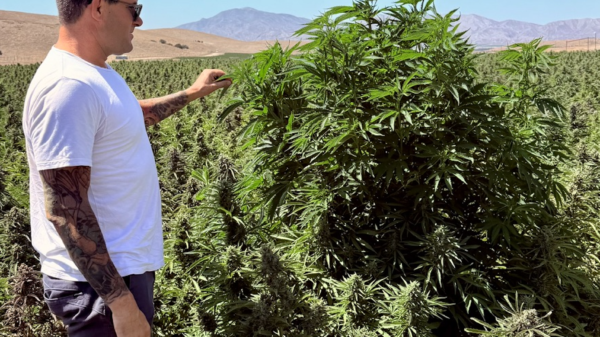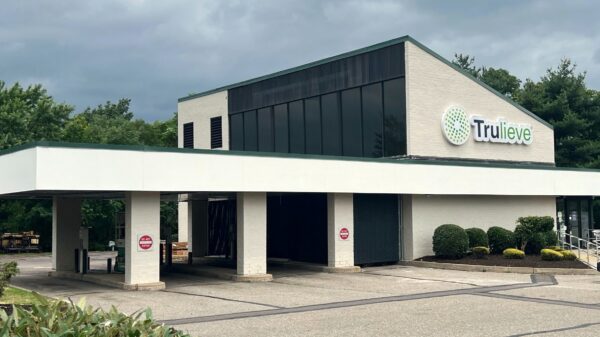While Canopy Growth Corp. has a fair chance at winning its lawsuit again Britain’s GW Pharmaceuticals, the case’s potential impact on U.S. cannabis extractors depends largely on how many are using Canopy’s specific, patented extraction method.
That’s according to Graham Pechenik, a patent attorney and founder of Calyx Law in San Francisco, who is closely watching the potentially blockbuster lawsuit.
On Tuesday, Canadian mega-producer Canopy was awarded a U.S. patent that covers a particular method of cannabinoid extraction called subcritical carbon dioxide extraction. And GW Pharma uses Canopy’s patented method to extract the CBD that’s the pharmaceutical ingredient in its FDA-approved anti-seizure medication Epidiolex, according to a lawsuit filed by Canopy on Tuesday in a U.S. federal court.

GW Pharma’s CBD-based Epidioilex is the first U.S. federally approved cannabis-derived medication. The company reported around US$366 million in U.S. net sales of Epidiolex in the first nine months of 2020. Photo via Greenwich Biosciences
Canopy said it acquired the intellectual property when it bought German cannabis company C3 in 2019. The patent in question is part of a patent family linked to C3 dating back more than 20 years to October 2000.
Canopy claims that GW Pharma’s infringement of its patented extraction method “has been and continues to be willful and deliberate.” And if the company can prove that specific claim at the U.S. District Court for the Western District of Texas, Pechenik says it will receive a larger payout from GW Pharma.
“We have no interest in restricting access to Epidiolex, but the company should be fairly compensated for GW’s use of our intellectual property,” a Canopy spokesperson told Mugglehead in an email.
Part of why Canopy targeted GW Pharma is the fact that Epidiolex sells for US$1,235 per 100 millilitre bottle — far more than a standard bottle of CBD oil, Pechenik notes.
Read more: GW Pharma shares soar 21% on rising revenues
Canopy strategically files suit at the ‘rocket docket’
According to the lawyer, Canopy probably filed the case at the U.S. federal court in Waco, Texas, because it’s the most popular venue for patent infringement suits in the U.S.
The court is known as a “rocket docket” since cases are less likely to be put on hold if there’s a separate challenge at the U.S. Patent and Trademark Office. Also, the court prefers to send case to juries rather than decide them on summary judgement, “And juries often tend to favor patent holders, sometimes with very large damage awards,” Pechenik says.
That will increase pressure on GW Pharma, because its law team will have a harder time stalling or using the post-grant review process to invalidate the patent with the patent office.
To win, Canopy has to prove that its patented extraction technology is the first recorded example used in the industry.
For GW Pharma to prevail, it has to demonstrate that Canopy’s patent claims were known and used in 2000, when the patent application was first filed. Otherwise, because GW Pharma describes using Canopy’s patented subcritical CO2 extraction on its website, it’s other option could be to show that Canopy isn’t entitled to damages based on the value of its pharmaceutical product, but only on the underlying extract.
“Based on our preliminary review of the complaint, we are confident in our position and will vigorously defend against this lawsuit,” a GW Pharma spokesperson said in an email.
If Canopy’s lawsuit succeeds, the impact on the U.S. extraction industry depends on how many companies are selling sub-critical extract products.
How big are US subcritical extract sales?
Canopy emphasized during the examination of its patent that its methods don’t cover supercritical CO2 extraction, Pechenik notes, which has become a more commonly used method by major U.S. extractors like California-based Sunniva Inc. since 2019.
Mugglehead is reaching out to U.S. cannabis extraction experts and will update this article with a closer look at the scope of operators using the subcritical CO2 extraction method.
None of the country’s four largest multi-state operators by 2020 sales — Cresco Labs, Trulieve, Curaleaf and Green Thumb Industries — reveal on their websites which type of CO2 extraction method they use for their branded products.
Additionally, because THC products are federally illegal, that “probably creates an insurmountable barrier to the enforcement of most patents that claim cannabis products or their use,” according to a Rutgers Law School Research Paper. Therefore, Canopy is more likely to target federally legal U.S. CBD operators, over those that handle THC products.
In theory, worried U.S. operators could simply shift to performing supercritical extraction, Pechenik says. Or, they could minimize the amount of subcritical CO2 extraction being done, which would lessen the damages base.
“Those who are potentially at risk should think carefully about issues of proof, and how to properly document what they’re doing to avoid problems in discovery,” he suggests.
As for Canopy’s patent itself, it’s set to expire in less than a year and a half. It’s uncertain whether Canopy will pursue litigation in that timeframe against other companies using the extraction process.
In future cases, the defendant has the option to try invalidating Canopy’s patent. Even if Canopy prevails against GW Pharma, it could lose the next one.
However, courts often show some deference to their sister courts, and a ruling that the patent is valid will usually make others less inclined to fight the same issues again.
Since the rights granted by a U.S. patent extend only throughout the states, they have no effect in foreign countries.
Top image via Eden Labs
jared@mugglehead.com














